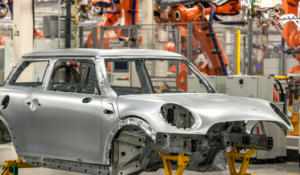Editor’s Blog: Can we really stop making petrol and diesel cars by 2035?
Apparently, at some point today, the prime minister will give a speech where he will bring forward the ban for selling new petrol, diesel and hybrid cars in the UK from 2040 to 2035.
I’ve got three issues with this…
I really hate the trend in politics where the ‘news’ that a speech will happen is reported ahead of it happening. ‘Man to say something, possibly’, is not news. It’s propaganda.
I’m concerned that this assumes a Conservative plutocracy in government for the next 15 years…
My much more serious gripe is that a target to ban the sale of market-dominant products in 15 years is unrealistic without major consultation and collaboration with industry.
Let’s put the first two of my disagreements to one side and focus on the third.
The vast majority agree that we have to decarbonise the economy, and unless the climate change deniers do a Brexit and take a marginalised and debunked idea and turn it into UK government policy, it is only a good thing that we create a sustainable economy with sustainable supply chains.

The challenge for the automotive industry is that for the next 15 years it will have to turn a niche product into the dominant product. That means long-term planning for the sourcing and production of all products throughout the automotive supply chains. It means reducing existing inventories. It means battery manufacturers increasing production levels.
Other markets have done this, such as turning the mobile phone into a smart phone, but in the automotive sector is requires a certain amount of collaboration, not just between businesses throughout the supply chain, but with government.
Last week I hosted a round table at the Gherkin looking at the trends that will change logistics in the coming decade. Sustainability led the way as the number one trend for the 2020s, but collaboration was not far behind.
MAN electric concept truck
Collaboration with the automotive industry will be required every step of the way to meet the 2035 target. That means establishing the right level of taxation on finished vehicles, the right duty on imported parts and the right trading conditions to manufacture alternately powered vehicles here in the UK. It is possible, the government just has to listen to industry as to how to achieve it and give it the right environment to succeed. Lecturing the sector about its failings will not help.
The reason the petrol- and diesel-powered vehicle has been so successful is because multinational businesses have built vast distribution networks for fuel, which makes it easy for the vehicle to be ‘re-charged’ in a quick and convenient way that is standard throughout the world.
Collaboration with government will also be required to deliver the right infrastructure across residential and commercial property in order to achieve our goals. Collaboration with government will be required to ensure that the huge demands on the national grid exerted by millions of battery-powered cars is electricity generated from sustainable sources, otherwise you’re just pushing the environmental impact from one part of the chain to the other.
As the SMMT chief executive Mike Hawes says: “A date without a plan will merely destroy value today.”
Anyone can set a target in a well-intentioned speech. The hard-work of actually delivering it begins now.
- You can read the results of Logistics Manager’s Vision 2020 round table, including contributions from DHL, Fed-Ex, Graze and Wincanton, in the March issue. We also have an automotive supply chain special in our May issue – if you want to take part get in touch!


